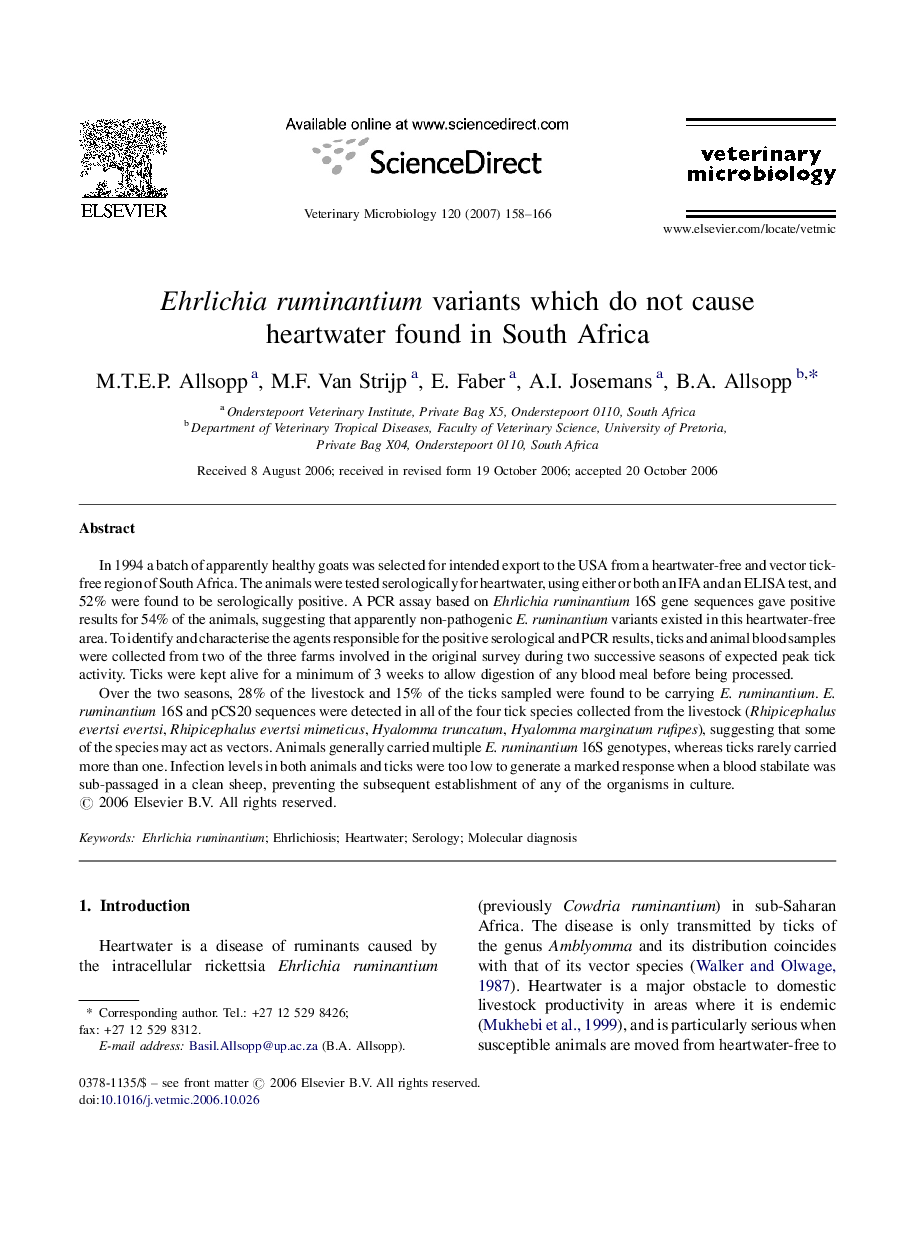| کد مقاله | کد نشریه | سال انتشار | مقاله انگلیسی | نسخه تمام متن |
|---|---|---|---|---|
| 2469363 | 1555456 | 2007 | 9 صفحه PDF | دانلود رایگان |

In 1994 a batch of apparently healthy goats was selected for intended export to the USA from a heartwater-free and vector tick-free region of South Africa. The animals were tested serologically for heartwater, using either or both an IFA and an ELISA test, and 52% were found to be serologically positive. A PCR assay based on Ehrlichia ruminantium 16S gene sequences gave positive results for 54% of the animals, suggesting that apparently non-pathogenic E. ruminantium variants existed in this heartwater-free area. To identify and characterise the agents responsible for the positive serological and PCR results, ticks and animal blood samples were collected from two of the three farms involved in the original survey during two successive seasons of expected peak tick activity. Ticks were kept alive for a minimum of 3 weeks to allow digestion of any blood meal before being processed.Over the two seasons, 28% of the livestock and 15% of the ticks sampled were found to be carrying E. ruminantium. E. ruminantium 16S and pCS20 sequences were detected in all of the four tick species collected from the livestock (Rhipicephalus evertsi evertsi, Rhipicephalus evertsi mimeticus, Hyalomma truncatum, Hyalomma marginatum rufipes), suggesting that some of the species may act as vectors. Animals generally carried multiple E. ruminantium 16S genotypes, whereas ticks rarely carried more than one. Infection levels in both animals and ticks were too low to generate a marked response when a blood stabilate was sub-passaged in a clean sheep, preventing the subsequent establishment of any of the organisms in culture.
Journal: Veterinary Microbiology - Volume 120, Issues 1–2, 25 February 2007, Pages 158–166